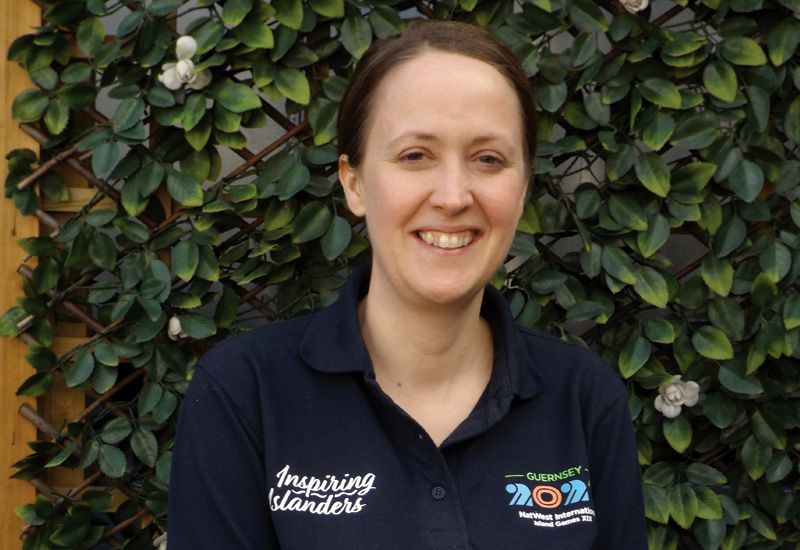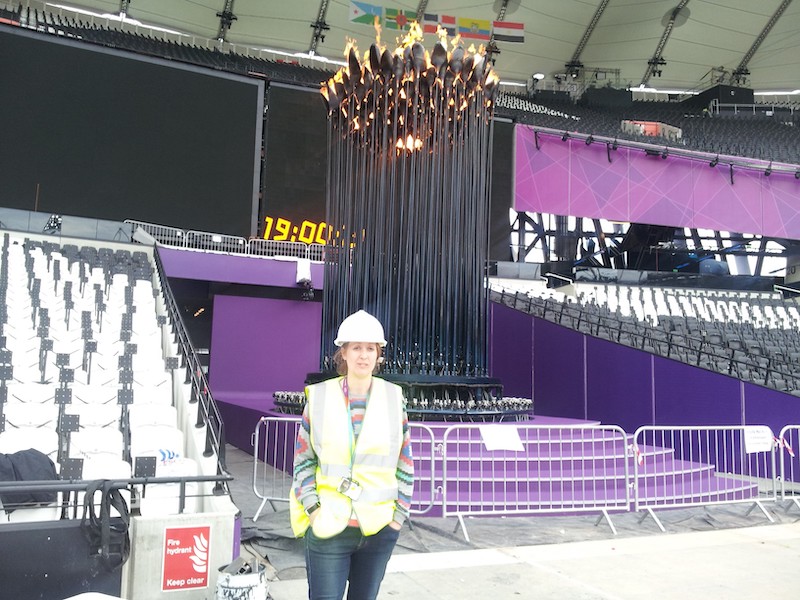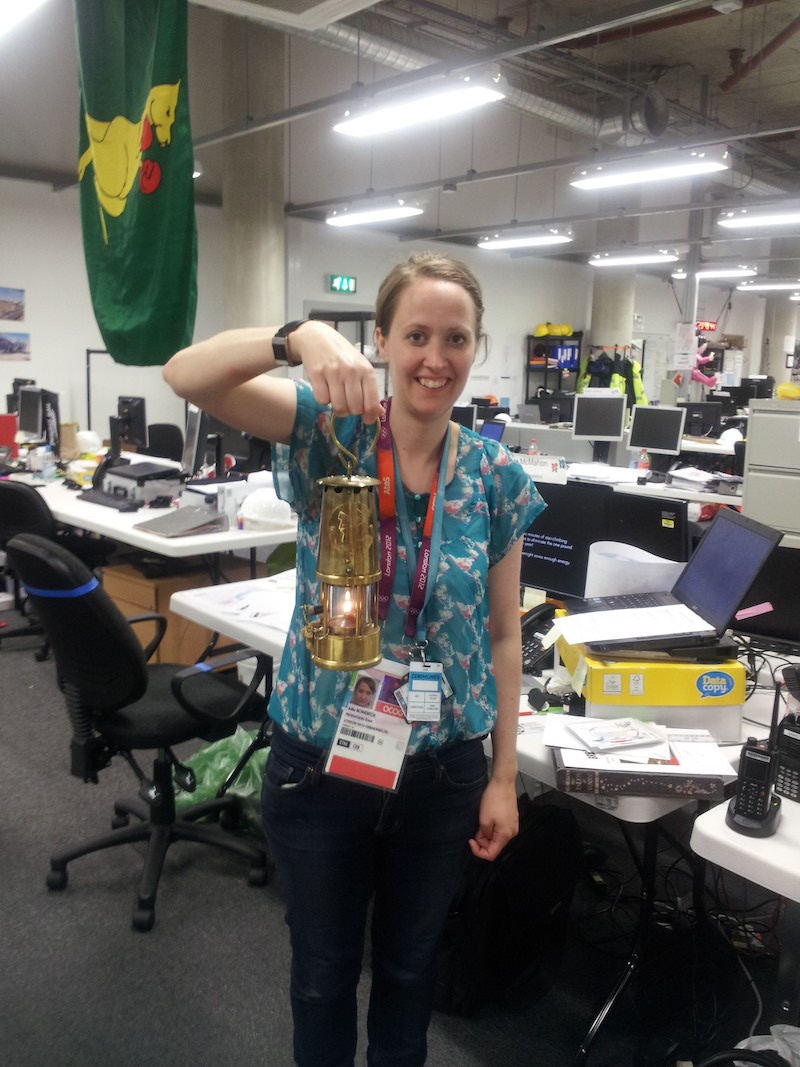

Julia Bowditch has recently taken up the post of Games Director for the Guernsey 2021 Natwest Island Games, having previously forged a successful career travelling the world and working on some significant sporting events.
She has now returned to her native island where she has the task of delivering another successful Games, building on the success of the last time Guernsey hosted the event in 2003.
Julia hadn’t planned a career in sport, but finding herself involved in one of the world’s largest sporting events was a pivotal moment in her life. Connect’s Trish Grover spoke with Julia and found out more about her professional journey.
Julia was backpacking in Australia in 2000 and found herself with a job at the Sydney summer Olympics, an experience which made her realise that this was the field that she wanted to work in.
“The Sydney Olympics was the best thing I had ever seen and even though I only was working in ‘lost and found’ – hardly the most glamorous role – I did get the opportunity to see the various venues and it was then that I decided that I really wanted to work in some capacity in the sporting events sector.”

Pictured: Julia Bowditch.
So with the career decision made, Julia returned to the UK and worked at the Commonwealth Games in Manchester in 2002 and then home to Guernsey where she worked as a volunteer co-ordinator at the Island Games – the second time the island had hosted the event.
Thereafter, Julia’s career took her around the world from one major event to another working in a range of roles, including a role with event sponsor Samsung at the Athens Olympics, as Venue Manager in Glasgow for the 2014 Commonwealth Games, Operations Manager in Abu Dhabi for a major triathlon event and Volunteer Manager for a large tennis championship.
But despite her extensive experience in so many venues, a major highlight in her career path sits much closer to home, when she was heavily involved with London 2012.
“I initially worked in Newham on the UK Olympic bid and then when we got that I returned to work on the event itself.”
If Sydney had been the catalyst in Julia’s choice of career path, her London experience ‘sealed the deal’. She was involved with the opening and closing ceremonies and was part of a team that was responsible for ensuring the set was ready for the events.
“It was a logistical challenge - for example planning to move hundreds of tons of turf at the right time – I knew nothing about this type of thing so it was a great learning curve. I was working with the stagehands, suppliers, any number of people from so many walks of life. It was an incredible experience and so interesting. I developed an understanding of how the creative process works, and had the opportunity to work with some of the very best people in their respective fields.”
Julia’s fairly transient life is something she seems to relish.
“The best thing about travelling and working, as opposed to being a tourist, is that you get to know people properly, you go out with the locals and you have a completely different experience than if you were on holiday. I love that aspect of it. If I hadn’t ended up working at the Sydney Olympics, I would have just hung out with other British back packers and of course I would have had a great time, but I had a much better experience through what I did.”
Julia brings a range of experience to her Games Director role as she has been involved with a wide variety of aspects of sports events – being a volunteer, organising volunteers, cleaning, waste management, logistics… so she is in an ideal position to take on an overseeing role for 2021.
Her focus is to ensure that in delivering a world-class event in the island, that everyone attending enjoys a consistent level of service.
“It’s really important that when athletes arrive, they are all looked after in the same way; they are transferred efficiently from the airport or harbour; their welcome packs are ready for them – to ensure that they feel part of this big event.
“My vision is that whatever venue you go to, you know and feel that you are part of the Island Games. A lot of it relates to logistics, moving people around and making sure everything happens as smoothly as possible.”

Pictured: Julia Bowditch.
The Guernsey Island Games team is made up, in the most part, by volunteers. Julia is one of two paid members of staff. But the bidding process started some years back and was finalised in Gotland
Funding has come in the main from the private sector and as Julia explained they have enough funding to deliver the event. However there is still scope for anyone else to come on board as they could always do more with a bigger budget.
“There are some specific ‘items’ that could be sponsored – so timing equipment for example. Some equipment we could hire in but we are also considering the purchasing option and then leaving equipment for island use going forward as part of the legacy of the 2021 Games.
“We also want to make the Games as green as possible so there are a few initiatives
we are looking into. In the same way as the symbol of the Olympics is fire – the Olympic flame – the equivalent for the island games is water. So we want to ensure that throughout our event, all venues can refill reusable water bottles – no plastic water bottles will be used.
“As part of the ceremonial side, we will be bringing back the water from Gibraltar in July at the end of their event when they empty their water feature and keeping it safe until 2021 together with the International Island Games flag.”
Julia and her team are keen to make Guernsey Island Games 2021 an event for all the island – not just for athletes. As part of that strategy, there are a number of areas in which the general public can get involved. One such project is the medal design competition.
This is open to anyone to enter – from school children to design agencies. Entries must be in by the end of May from which a shortlist of three will be selected. These will then be submitted to the Island Games Association and main sponsor NatWest for approval, and then the final decision will be made by islanders voting for their preferred choice.
As well as the honour of seeing their design used for all of the medals during the Games, the overall winner will also receive their own commemorative set of medals and will be given the opportunity to present the winners’ medals at one of the events during the week. All of the shortlisted finalists will receive VIP tickets to the opening ceremony of the Games.
“Anyone can compete and some entries are in already,” said Julia. We wanted to make it accessible to everyone whether that’s a 7-year-old child or a design agency so that we can fully engage with the public.
“Two athletes are part of the shortlist judging panel – Tom Hollingsworth who has won an amazing total of 42 Island Games swimming medals (including 21 golds ) and Lisa Gray – an archery team member.
“Their feedback from their recipients’ perspective is that the more distinctive designs are the medals they remember. The medals don’t have to be made of metal – we are open to other materials such as wood, granite – we just want people to be creative. Full details can be found on the Games website.”
Organising this type of event doesn’t come without its challenges and, like most islands, travel, accommodation and logistics are top of the list. There are around 3,500 visiting athletes expected, 1,000 team officials plus medical support, families and supporters. Julia has been working closely with the accommodation sector and has been delighted with the positive response she has had.
“We obviously need to make sure we have enough hotel beds which means adding extra beds to rooms. Athletes are used to sharing rooms, sleeping in bunk beds and so this is perfectly fine. It’s a question of making sure everyone has a consistent experience and service without having a ‘village’.
“We have had really positive response from hoteliers. This is in large part because of the positive feelings about 2003. People still remember the event and we are lucky that we can build on that legacy. The games have to fit the island not the other way around. There are islands of so many different sizes in the association so you have to make it your own event for your own specific island.
“This is reflected in the sports that are included – you have to choose 14 from the list of sports and in our case we have only selected two team sports basketball and football.”
Apart from financial sponsorship there will be other ways that the corporate sector can get involved. Julia plans to run a corporate engagement programme offering corporate volunteer opportunities whether that’s through companies giving staff time off to volunteer through an existing community support programme or more bespoke projects.
“A bespoke volunteer project will be something that a company will take on and manage. For example this might be manning a welcome desk at the airport that needs 10 people for 10 hours. The company can decide how to resource it which is fine as long as they guarantee to provide the cover over the period that we need.”
Whilst some communication and promotion activities have started to take place, the real push will be once the Gibraltar event is over in July so in the meantime Julia suggests that people visit the games website for information.
After 2021 is done and dusted Julia has no fixed ideas where she will next find herself. Her focus is now on delivering a successful ‘People’s Games’ of which the island can be proud. As the Games’ tagline says it’s all about ‘inspiring people’.
This article first appeared in Connect Magazine which is out now.
Comments
Comments on this story express the views of the commentator only, not Bailiwick Publishing. We are unable to guarantee the accuracy of any of those comments.